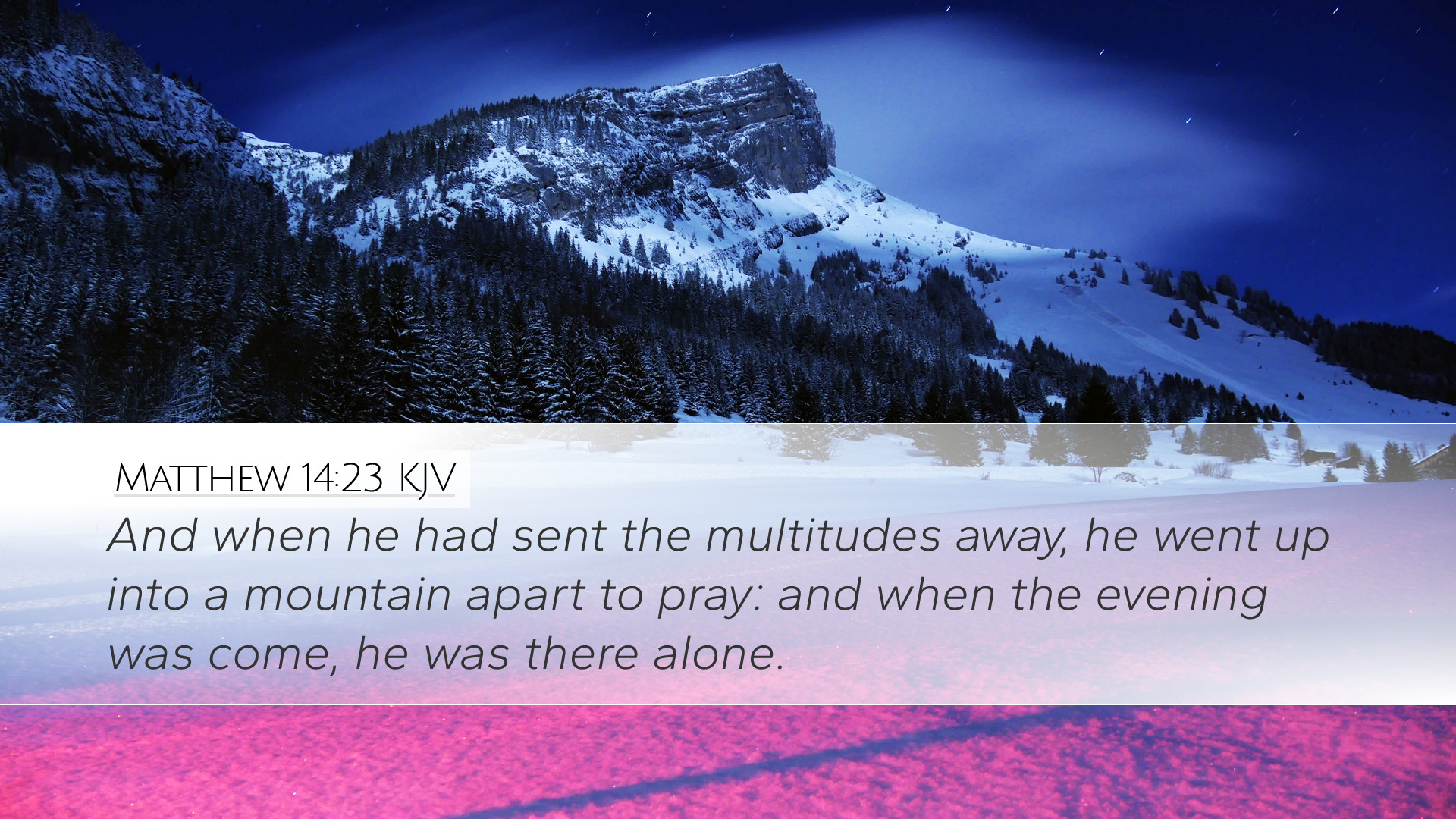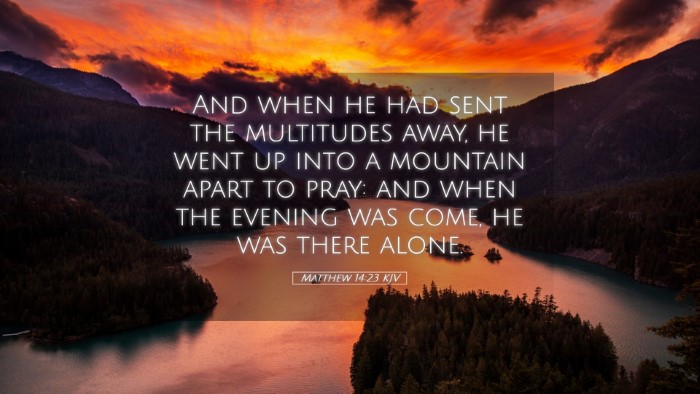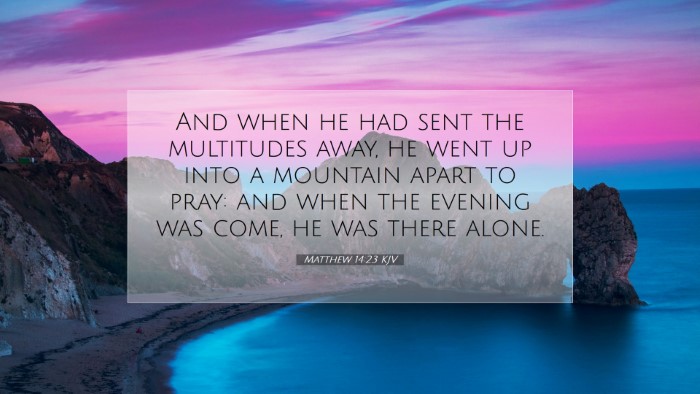Commentary on Matthew 14:23
Matthew 14:23 presents a significant moment in the ministry of Jesus, revealing both His humanity and divinity. The verse states, "And after he had dismissed the crowds, he went up on the mountain by himself to pray. When evening came, he was there alone." Through the words of this passage, we explore the themes of solitude, prayer, and the relationship between Jesus and His disciples.
1. Contextual Background
This passage occurs after the miraculous feeding of the 5,000, a pivotal event that propelled Jesus into the hearts of the people as a prophet and miracle worker. The crowds were eager to make Him king, but Jesus knew the time for His revelation would come in God’s timing, not in the fervent wishes of the multitude.
2. The Act of Dismissing the Crowds
Importance of Solitude: Matthew Henry emphasizes the importance of Jesus dismissing the crowds. He notes that Jesus took the initiative to send the people away, showing His authority and discernment regarding the situation.
- Leadership Quality: A good leader often knows when to let go of situations to ensure the right course of action.
- Setting Boundaries: This moment teaches the value of setting boundaries for ministry, balancing public engagement with personal retreat.
3. Ascending the Mountain
Albert Barnes highlights the significance of Jesus’ decision to go into solitude. The act of ascending the mountain is emblematic of moving away from the distractions of ministry and crowds towards communion with God.
- Symbolism of the Mountain: Mountains in Scripture are often locations where individuals have profound encounters with God (e.g., Moses on Sinai).
- Spiritual Retreat: This act presents Jesus as a model of withdrawing to seek divine guidance and strength through prayer.
4. The Importance of Prayer
Adam Clarke points out that the solitude of Jesus allowed Him to engage deeply in prayer. He affirms that prayer was essential to Jesus’ ministry and life, underscoring the connection between prayer and power in the work of God.
- Prayer as Priority: Before addressing the needs of others, Jesus prioritized His own spiritual needs.
- Modeling Prayer: This teaches pastors and leaders the significance of their private prayer life in sustaining public ministry.
5. The Timing of Evening
The phrase "When evening came," suggests a time of quiet and reflection. Evening in the Jewish context was often a time for prayer and contemplation, indicating the close of day and preparation for the rest.
- Spiritual Reflection: Evening represents a moment of introspection after the day’s work, mirroring the reflective heart of a faithful believer.
- Call to Prayer: It invites readers to establish evening prayers, echoing the rhythm of life that Jesus modeled.
6. Jesus’ Solitude
Jesus’ choice to be alone brings forth profound lessons about personal spiritual practices. Henry articulates that solitude can sometimes invite divine revelation.
- Divine Encounter: It is in the quiet spaces of life that we often hear God’s voice most clearly.
- The Necessity of Solitude: This highlights the need for solitude in a believer's life, where one can meditate on God’s Word and presence.
7. Conclusion
In conclusion, Matthew 14:23 serves as a mirror reflecting the balanced life of ministry reflected in Christ Himself. Here, Jesus sets an example that calls all believers, especially those in leadership, to a dual commitment of active ministry and contemplative prayer. As ministers, students, and scholars reflect on this passage, they are encouraged to cultivate their prayer lives, seek solitude for spiritual rejuvenation, and remain devoted to listening for God's direction in both personal and public life.


